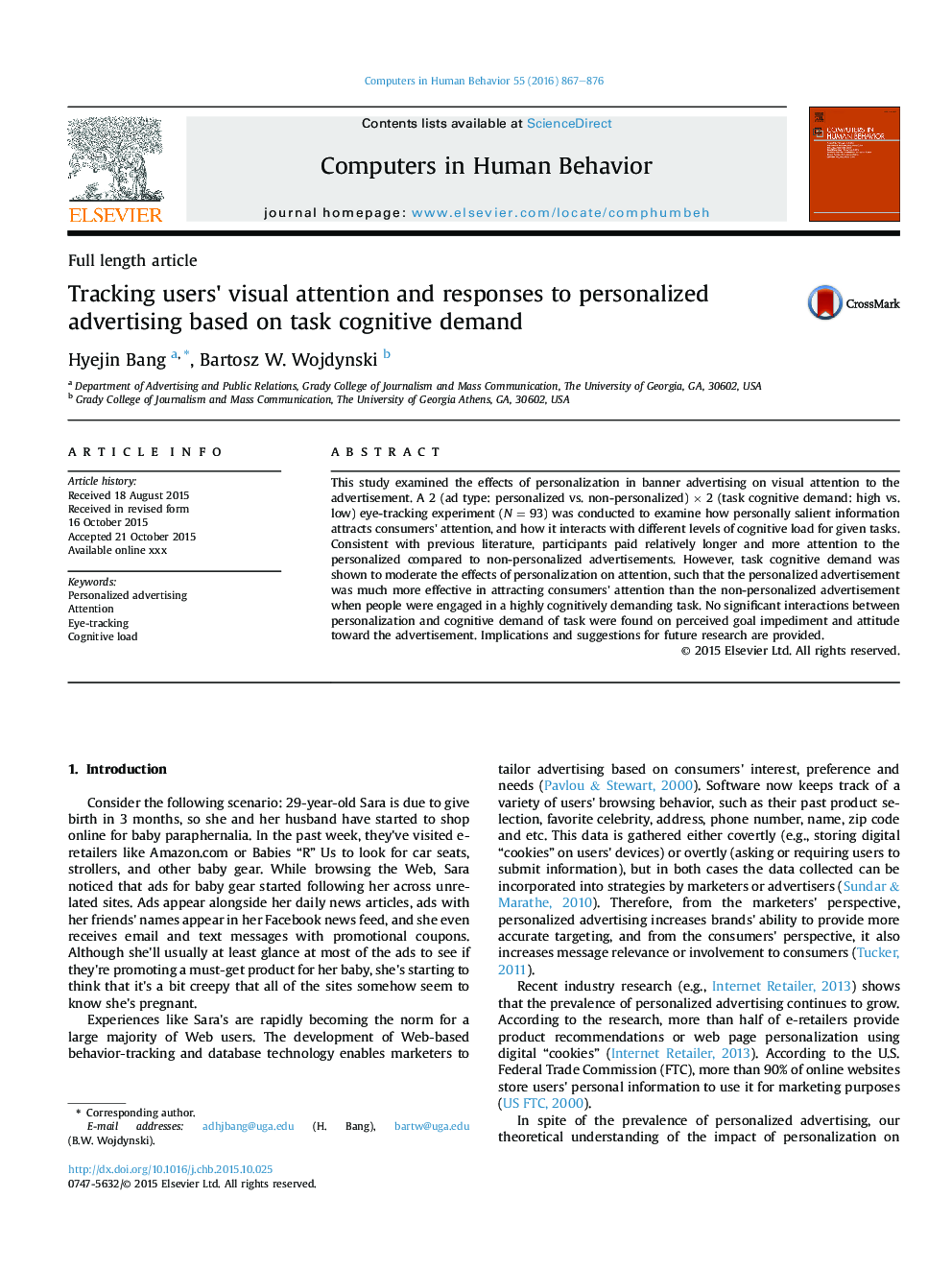| Article ID | Journal | Published Year | Pages | File Type |
|---|---|---|---|---|
| 10312718 | Computers in Human Behavior | 2016 | 10 Pages |
Abstract
This study examined the effects of personalization in banner advertising on visual attention to the advertisement. A 2 (ad type: personalized vs. non-personalized)Â ÃÂ 2 (task cognitive demand: high vs. low) eye-tracking experiment (NÂ =Â 93) was conducted to examine how personally salient information attracts consumers' attention, and how it interacts with different levels of cognitive load for given tasks. Consistent with previous literature, participants paid relatively longer and more attention to the personalized compared to non-personalized advertisements. However, task cognitive demand was shown to moderate the effects of personalization on attention, such that the personalized advertisement was much more effective in attracting consumers' attention than the non-personalized advertisement when people were engaged in a highly cognitively demanding task. No significant interactions between personalization and cognitive demand of task were found on perceived goal impediment and attitude toward the advertisement. Implications and suggestions for future research are provided.
Keywords
Related Topics
Physical Sciences and Engineering
Computer Science
Computer Science Applications
Authors
Hyejin Bang, Bartosz W. Wojdynski,
